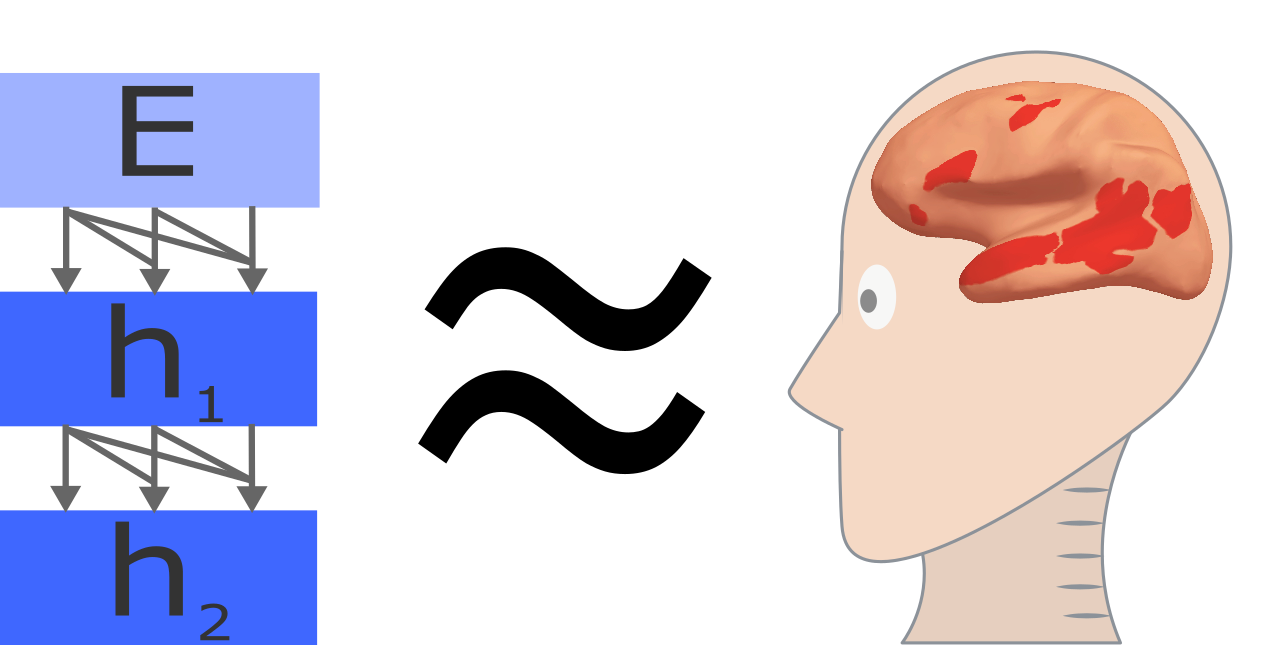
Artificial Neural Networks Accurately Predict Language Processing in the Brain
Description
Recent computationally precise hypothesis have revolutionized the neuroscience of sensory systems. It has however remained unclear whether such models could explain brain data beyond perception. We here report progress in modeling human language processing, our species’ signature cognitive skill. Specifically, we tested the long-standing hypothesis that the brain's language system is functionally optimized to extract meaning through predictive processing, by asking whether diverse artificial neural networks built to predict words given context capture human brain activity during language comprehension. The most powerful predictive ‘transformer’ models accurately capture neural responses across three datasets (2 fMRI, 1 intracranial-recordings), in some cases achieving near-perfect predictivity. In contrast, simpler word-based embedding models only poorly predict neural responses (<10% predictivity). Critically, model predictivity is strongly correlated with success on next-word-prediction but not other language tasks, and further links to their ability to explain human comprehension difficulty. Intriguingly, model architecture alone drives a large portion of brain predictivity, with each model's untrained score predictive of its trained score. These results suggest that a drive for online prediction fundamentally shapes the architecture of language processing in the human brain.
Link to paper: https://www.biorxiv.org/content/10.1101/2020.06.26.174482v1
Link to Zoom Webinar: https://mit.zoom.us/j/91728552879
Speaker Bio
Martin completed his Bachelor and Master degrees in Software Engineering in Germany at TUM, LMU and UNA, conducting his Master’s Thesis on recurrent visual processing at Harvard with Gabriel Kreiman. He has founded the non-profit startup Integreat and worked at Salesforce Research on deep learning for NLP with Richard Socher before joining MIT’s Brain and Cognitive Sciences program for his PhD. There, he is advised by James DiCarlo and works on evaluating and building neural network models of brain processing.

